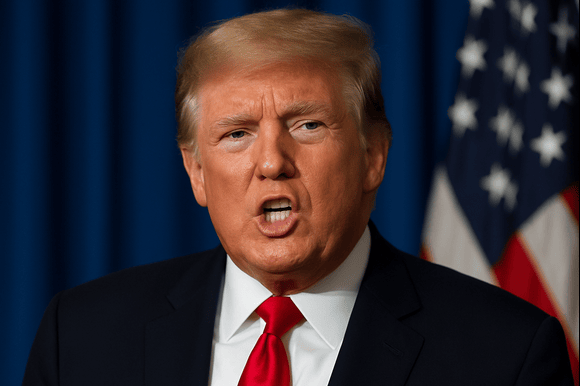Former President Donald Trump sharply escalated his political attacks on Thursday, accusing six Democratic lawmakers of “seditious behavior … punishable by DEATH!” after they released a video urging U.S. military and intelligence personnel to refuse unlawful orders.
Trump posted his statements on Truth Social, labeling the lawmakers’ message “really bad, and dangerous to our country.” He questioned whether they should be imprisoned, writing, “LOCK THEM UP???” and insisting that their actions required accountability.
The six lawmakers targeted by Trump include Sen. Elissa Slotkin (former CIA analyst), Sen. Mark Kelly (former Navy astronaut), and Representatives Jason Crow, Maggie Goodlander, Chris Deluzio, and Chrissy Houlahan, all of whom have military or intelligence backgrounds.
In their video, the lawmakers emphasized that threats to the U.S. Constitution are not only external but also domestic, warning service members to refuse orders that would violate their oath to uphold the Constitution. The video reflects concerns about the growing risk of unlawful directives within government institutions.
Trump’s reaction was unusually severe. He declared their behavior “seditious” and deserving of the death penalty. He further reposted a comment from a supporter that called for execution, saying, “HANG THEM — GEORGE WASHINGTON WOULD !!” Trump also demanded that the lawmakers be “arrested and put on trial,” warning that “an example MUST BE SET” to prevent challenges to authority.
Critics have strongly condemned Trump’s remarks as extreme and dangerous. Democrats, in particular, called for accountability and warned that such rhetoric could normalize violence and intimidation against political opponents. Some commentators have argued that Trump’s statements highlight the growing tensions over military loyalty and constitutional adherence in the United States.
Legal experts note that while the language is provocative, prosecuting lawmakers for urging service members to refuse illegal orders is unlikely under current U.S. law. However, the episode underscores the increasing entanglement of military and constitutional issues with partisan politics and raises concerns about the tone of political discourse in the country.






